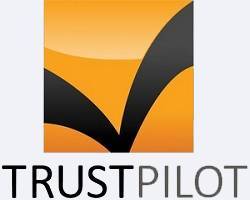BlueHID Brings wireless Bluetooth connectivity to the Universal Human Interface Device.
Unique driver-free Input and Output features now without wires!
Choose between two versions:
BlueHID-BH:
This version has a CR2032 battery holder on board (rear of board). It does not have the battery charger circuit nor USB connector.
BlueHID-BC:
This version has an on-board battery charger powered by an on-board Mini-USB "power-only" connector. It is designed to run with an external Lithium-Polymer or other rechargeable battery pack.
36 connections arranged in an open pin-header format allowing multiple varieties of standard connector to be used.
Connections can be assigned as:
Keyboard key
Gamepad Button
Gamepad analog axis with or without auto-calibration and center dead-zone.
Gamepad POV Hat.
Mouse button (including double-click)
Quadrature Mouse Pair. X or Y axis. Normal or reverse direction.
Quadrature left/right button presses.
PC-controlled LED output using special software
PC Num/Scroll/Caps lock LEDs
Blue-HID locally-controlled LED output based on the state of any switch.
Logic level output (20ma max)
Ground
Features:
Power-saving modes which are the most advanced in their class. Not only does the board enter a progressive low-power state but it also sets connected devices to low power states.
No special drivers or application changes needed except for PC-controlled LEDs which has an API with code examples.
Simple open pin-header connectors allow use of separate or composite modular wiring harnesses.
U-Config configuration utility allows the connections to be configured for each device type, and keycodes and other attributes set.
Configuration information is sent “over-the-air” from a PC equipped with a standard Bluetooth interface.
Switches handled by super-fast logic using an individual de-bounce state counter for each input giving ultimate performance for gaming applications.
No key ghosting or blocking ever.
Advanced keycode/button programming with in-built shift feature. Includes macro capability
12-bit analog axis support
Configuration utiity interacts real-time with the board and all settings stored instantly in Flash ROM on the board.
Optional CR2032 battery holder. Or Optional USB power connector and on-board charging circuit for external battery.
Single Mini-USB connector for PC (or MAC) connection. No separate power needed
36 Truly independent inputs allow all switches to be commoned to ground. No matrix or diodes
Modular 8-way + ground harnesses available.
Extended switch harnesses available.
ESD protected inputs. Vital for high-footfall public applications.
All settings stored in Flash ROM and retained after power-off.
Configuration can be changed on-the-fly using a command-line. The board can assume a completely different layout instantly.
Advanced Features:
Key and Button functions can have one primary and one secondary code assignment.
Secondary assignments are invoked by first activating a “Blue-HID Shift” connection.
Any connection can be assigned as a shift.
Unique separately-programmable “button down” and “button up” events allow use of all types of normally-closed, normally-open, or active high/low controls.
“Button down” and “button up” can be separately assigned as primary or secondary codes.
Controls can be assigned as “normal” or “pulse”.
Toggle (push on-push off) and flip-flop modes available.
Programmable analog offset and scale factor for all analog axes.
X and Y axes can be configured with adjustable center dead-zone and auto-calibration.
Extended macro capability.
User-upgradeable firmware for future enhancements and customizations.
Examples of control types which can be connected:
Pushbuttons
Switch-type joysticks
Toggle switches
Toggle switches with integral LED (does not require a second connection for the LED)
Momentary pushbuttons with integral LED (LED can be controlled without any host application, or can be host-controlled)
LEDs associated with a switch. (LED can be controlled without any host application)
LED indicators driven by a PC application.
Other devices can be controlled either directly or via an external high-current driver
Analog joysticks
Incremental Rotary encoders (Spinners).
Low-resolution rotary encoders (360 degree volume control type)
12-way or N-way rotary switches used as encoders (requires simple diode circuit)
Trackballs
Pots
Optical steering wheels
Pot-type steering wheels
Pot-type throttle pedals
Analog Voltage sources (0-5 volts).
TTL logic signals.
Control counts which can be configured:
Total 36 connection pins.
Max 6 analog axes on 36 possible pins.
Max 32 Gamepad buttons.
Max 3 Quadrature mouse axes (X, Y and Z)
Max 36 keyboard keys on 36 possible pins.
Max 16 LEDs in any combination of PC or Blue-HID controlled.
Max 36 low-current output drivers.
No posts found
The price has not changed yet. We will show it on this chart once it changes











 Instagram
Instagram













1